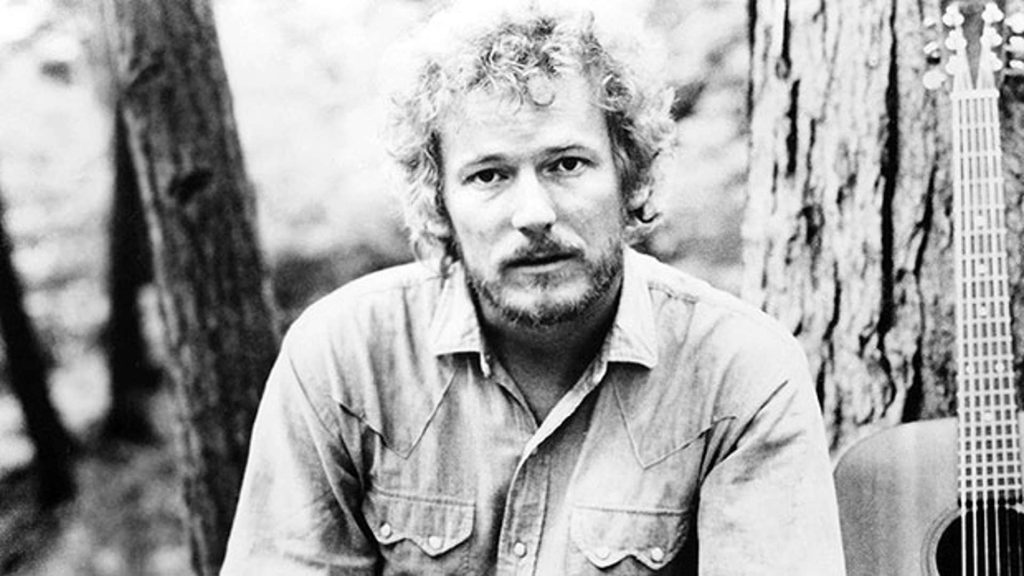By Wayne Allensworth

Gordon Lightfoot, Canada’s Minstrel of the Dawn, the travelling troubadour of Don Quixote, who warned Sundown to take care, languished in loneliness In the Early Morning Rain, and who wondered what would be discovered If You Could Read my Mind, has passed on at the age of 84. Sometimes I thought he could read our collective mind, as his songs were at once deeply personal and universal in their depth of experience and emotion. Just about everyone from movie stars to pop idols call themselves “artists” now, but Lightfoot was an artist in the true sense, taking us beyond catchy songwriting to lyrics that touched on human experience in a way that most don’t.
Bob Dylan once said that Lightfoot was a personal favorite, and his songs, which ranged from folk to country to pop, were duly recorded by some of the most popular and renowned recording stars of his lifetime. Johnny Cash, Bob Dylan, Peter, Paul, and Mary, Marty Robbins, Neil Young, Elvis Presley, Eric Clapton, Jimmy Buffet, the Kingston Trio, Judy Collins, Hank Williams, Jr…the list goes on and on of those who recorded songs that seemed to flow so readily from Lightfoot’s musical muse. His songs were, as Rolling Stone noted, “deceptively simple,” the depth and range of experience covered by that apparent simplicity. According to Rolling Stone, Dylan said that he couldn’t think of any Gordon Lightfoot song he didn’t like. I can’t, either.
I think my generation may have been the first to have a full-blown soundtrack to our lives. It was a phenomenon George Lucas alluded to in his nostalgic take on the early 1960s in American Graffiti, in which music of the era played such a prominent role. But it would be the 70’s that saw our musical background accompaniment expand from records and radio to those clunky eight track tapes. You didn’t have to sit and home and play and replay singles to absorb the sounds that resonated with you—you could take them with you in your car and hit “rewind” again and again. Music was already ubiquitous in movies and television, but the musical score of our lives kept finding new avenues, until we lived in a surround sound reality in which music for any mood or time, a sunny day or a dark night, a bright moment, or a sad one, was readily available.
And for this boy, who grew up in the 60s and 70s, Lightfoot was a mainstay on my personal soundtrack, one that I kept coming back to again and again. By the time Lightfoot became a pop star on American radios in the 1970s, he had already traversed the journey through folk music, and his songs were popular with country singers as well. In 1970, If You Could Read my Mind provided the vehicle that made Gordon Lightfoot a pop standard in our musical repertoire. It was hit after hit after that, Sundown solidifying his status as a popular singer/songwriter, defining an approach to music that was part of the era (think James Taylor, Judy Collins, Joni Mitchell, and Jim Croce). Lightfoot wandered musically down that Carefree Highway, and in The Wreck of the Edmund Fitzgerald made a folk dirge into a pop hit in 1976, chronicling the sad tale of a shipwreck on Lake Superior. It was a lane Lightfoot had been down before, creating a folk classic in his wide-ranging story of the settlement of Canada in Canadian Railroad Trilogy. This wasn’t “folk” in the Greenwich Village, “protest” song vein, but a song about ordinary people, working men who built a railroad, settlers who made a country.
Among his songs that aren’t as well known, listen to his Affair on Fifth Avenue, The Circle is Small, Beautiful, Shadows, and I’ll Tag Along, each one a small classic.
Lightfoot overcame alcoholism in the 1980s. His subsequent career never matched that of his huge success of the 70s, but he kept touring and recording. He had been ailing for years following an aortic aneurysm in 2002, and his voice suffered from that, but Lightfoot’s legions of fans kept coming to his shows to hear the man himself perform sad, but never maudlin, tunes, his soaring musical epics, and his touching lines of nostalgia. Gordon Lightfoot will be missed, but his recorded legacy will live on.
Chronicles contributor Wayne Allensworth is the author of The Russian Question: Nationalism, Modernization, and Post-Communist Russia, and a novel, Field of Blood.

Thank you for putting into words the depth of loss I have felt with the passing of Gordon Lightfoot. He read the minds and hearts of a generation of wanderers who felt kinship with other lonely folk in the rain.
I share your sense of loss. Thank you.